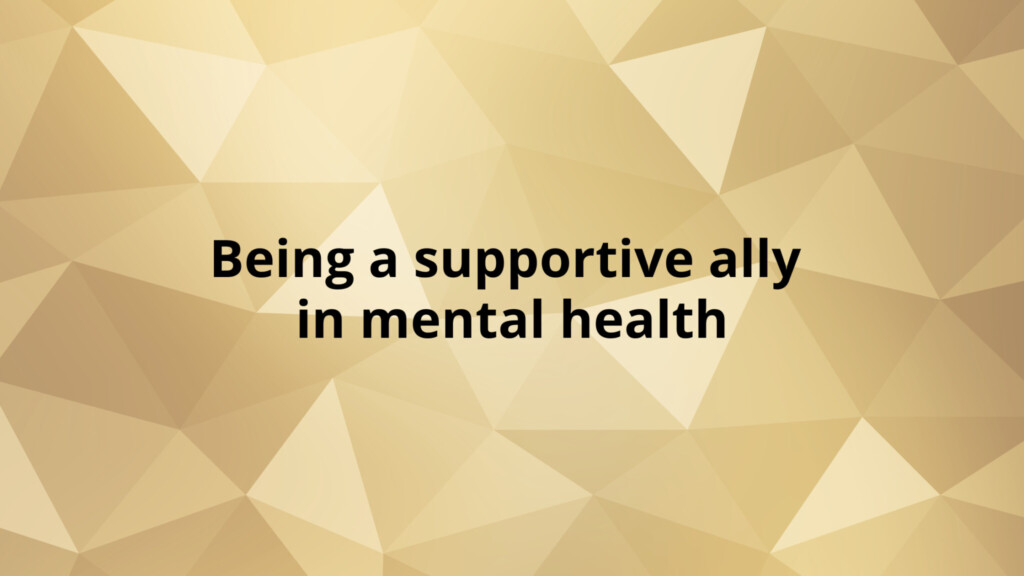
Supporting someone with a mental health challenge can make a significant difference in their journey towards recovery. Here are some ways to be a supportive ally:
- Listen Without Judgment: Allow the person to express their feelings and experiences without interrupting or offering unsolicited advice.
- Educate Yourself: Learn about their experience to better understand what they’re going through and how you can help.
- Encourage Seeking Help: Gently suggest seeking help from mental health specialists or support groups, if they haven’t already.
- Respect Their Privacy: Keep their disclosures confidential unless you are concerned for their safety.
- Stay Connected: Regular check-ins can provide much-needed support and reassurance.
Being there for someone and showing genuine care can help reduce stigma and promote mental well-being.
Steps we can all take to challenge mental health stigma
Reducing stigma requires collective effort and action. Here are some steps we can all take:
- Speak Up: Challenge stigmatizing comments or jokes when you hear them. Educate others about the impact of their words.
- Share Your Story: If you’re comfortable, share your own experiences with mental health to normalize the conversation.
- Support Mental Health Initiatives: Participate in or donate to causes working towards mental health awareness and support.
- Advocate for Change: Support policies that promote mental health care accessibility and anti-discrimination laws.
- Practice Self-Care: Taking care of your own mental health sets a positive example and reinforces that mental health is a priority.
By taking these actions, we can create a more inclusive and supportive society for everyone.
Download the helpful guide
Education and open conversations are key to reducing stigma and creating a more supportive environment for everyone. This quick guide will help you get started.
Download your copy of the helpful guide.
What’s on during Challenging Stigma Week
Share

